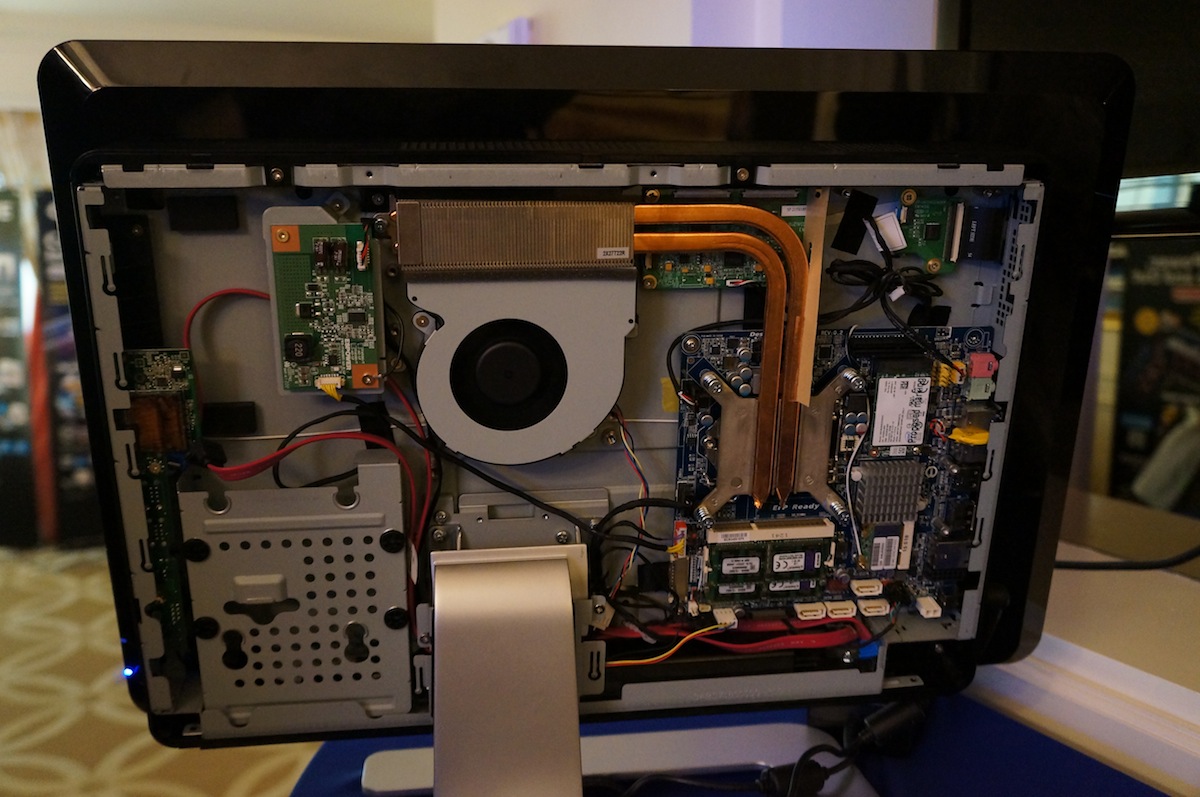Gigabyte Responds to Intel's Exit from Desktop Motherboards
We get Gigabyte's reaction to the landscape-changing decision from Intel.
Get Tom's Hardware's best news and in-depth reviews, straight to your inbox.
You are now subscribed
Your newsletter sign-up was successful
Yesterday, Intel revealed news that it will cease engineering desktop motherboards after Haswell this year. Instead, Intel will be reinvesting its resources into other areas that it believes to present greater growth opportunities, such as reference designs for Ultrabooks and all-in-ones, along with its Next Unit of Computing (NUC).
Given how this decision by the world's largest chipmaker will directly affect the businesses of motherboard vendors, we decided to reach out for comment from the industry giants. The first to respond was Gigabyte with the following statement:
"While over the years Intel motherboards have been a competitor, they have also been a important partner in that they have opened up future markets for GIGABYTE to sell desktop motherboards into. For example the market for corporate systems using Intel’s now popular VPro technologies – there was initially very little demand for these platforms, but now after Intel motherboards created the market, GIGABYTE now offers a number of models because volumes are significant enough to warrant their own segment within our product portfolio. We expect the market for Thin Mini-ITX mobos to be another example of this later in 2013. So we’re a little sad to see them go. However, we understand that this highly competent team at Intel will continue to drive new market segments with form factor reference designs such as the tiny NUC that we saw at CES this year. "We plan to do all we can to make this transition as smooth and painless as possible by working with our channel partners and friends at Intel to provide sufficient consumer, corporate (VPro) and power user motherboards to markets where Intel motherboards enjoy strong demand. GIGABYTE Ultra Durable motherboards are an excellent substitute for Intel branded motherboards, and we offer a full range of models from the ATX form factor down to the Thin Mini-ITX form factor for AIO systems."We don’t think that this will affect Intel’s CPU market share because in future motherboard vendors are likely to focus more in their Intel platform business in regions where Intel motherboards are popular than in the past where they would be competing with an Intel sales team for this market share."
Contact Us for News Tips, Corrections and Feedback
Get Tom's Hardware's best news and in-depth reviews, straight to your inbox.
-
COLGeek Classy, professional response by Gigabyte. Nice to see good conduct reported on from time to time.Reply -
aoneone In other words, mini ATX is going to take over and the new generation of smaller desktops will emerge. Of course, they have existed for years, but maybe it will become the new standard. Who knows?Reply -
john15v16 Intel's exit from desktop motherboards isn't a big deal...their motherboards really aren't that great anyway...Reply -
hate machine john15v16Intel's exit from desktop motherboards isn't a big deal...their motherboards really aren't that great anyway...Reply
They did spearhead pushes into different form factors however. Didn't see much outside of ATX before they entered. However I do not know if that was due to tech advances or Intel. That said their mobos were fairly sturdy but like their SSDs were always priced well above the competition and they were just downright ugly... (Hey some people are into Mobo aesthetics! :) -
DRosencraft Like most of us thought when we read this story yesterday, the long and short is that Intel motherboards are not used by many in the builder community, so for Gigabyte that doesn't change much in the consumer market. In the server and commercial market where Intel has more of a presence and embedded stake, it makes a bigger wave, particularly since there aren't quite as many manufacturers in that sector.Reply -
joebob2000 full ATX will be the full tower case of the early 2000's: sure you can get one but why the **** would you want to? MicroITX is the new reference size, even miniATX/microATX is too big for modern designs. Why would you want to take up so much space, when the CPU die basically does everything from video to networking, audio, and the rest?Reply -
ibjeepr So in otherwords, it was nice that Intel had the bank roll to break open new markets and then the smaller players could just follow in afterwards. Now the smaller players are going to have to do more of that on their own...hmmm I wonder if motherboard prices will go up?Reply

